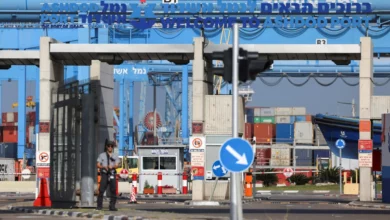Many believe that the events that have shaken the region since the launching of the “peace process” in the 1970’s have underlined the wisdom of the saying: “No war without Egypt and no peace without Syria.” However, this belief must be approached with extreme caution. It is true that removing Egypt from the equation prevented the outbreak of a full-scale Arab-Israeli war, but it did not restrain Israel from launching wars and aggressive raids whenever it desired to chastise whatever Arab state it wished. Repeated wars against southern Lebanon, then against Lebanon in its entirety, and finally against Gaza, and its uninterrupted incursions into a number of Arab states such as Iraq, Tunisia, Sudan and Syria only prove this point. It is also true that the steadfastness of Syria prevented Israel from imposing all its conditions for a peace settlement on the Arab world. Yet Syria could not stop Israel from attempting to Judaize Jerusalem and from sowing settlements all over the West Bank to the point that liquifying the Palestinian issue in its entirety is just around the corner.
However, what is striking here is that Egypt’s exit from the Arab-Israeli conflict more than thirty years ago did not help it become an advanced state, and the continued involvement of Syria in the conflict did not lead to its collapse or surrender. If we recognize that there has been a sharp increase in the number of intra-Arab conflicts since the launching of the “peace process,” we can clearly see that this process was designed so Israel could achieve its goals by other means.
There is an important lesson that must be extracted from these truths, no one party can extract itself from the conflict or achieve victory by itself. We are not facing a border dispute among states, but rather we are in the midst of an existential conflict against a Zionist project that aims to crush the spirit of the Arab people as a whole. The nature of this conflict requires that the Arabs gather their energies to confront this threat if they are not to be condemned to extinction. Since it has been proven with solid evidence that Egypt’s departure from the arena of conflict weakened both it and the Arab world, I think the time has come for us to realize that the Arab world will not reclaim its soul before Egypt reclaims its own.
It is no coincidence that Egypt’s exit from the conflict lead to the liquidation of the public sector, to the decline of national industry, to a dependence on foreign aid, to a widening gap between the rich and the poor and to the renewed dominance of capital over government. Similarly, the emergence of a project to bequeath the presidency along familial lines is nothing but an attempt to preserve the status quo to ensure the welfare of those domestic and foreign circles of power that benefit from it. Therefore it must be understood that defending Egypt’s position and standing, both regionally and internationally, and maintaining its cohesion with the Arab Nation, are the other part of Egypt’s battle for internal legitimacy. Thus, I am convinced that establishing democracy in Egypt is the beginning of the fast track to not only development and internal progress, but also to a naturalization of relations with the Arabs, and a renewed sense of leadership in the Israeli conflict.
Translated from the Arabic Edition.




